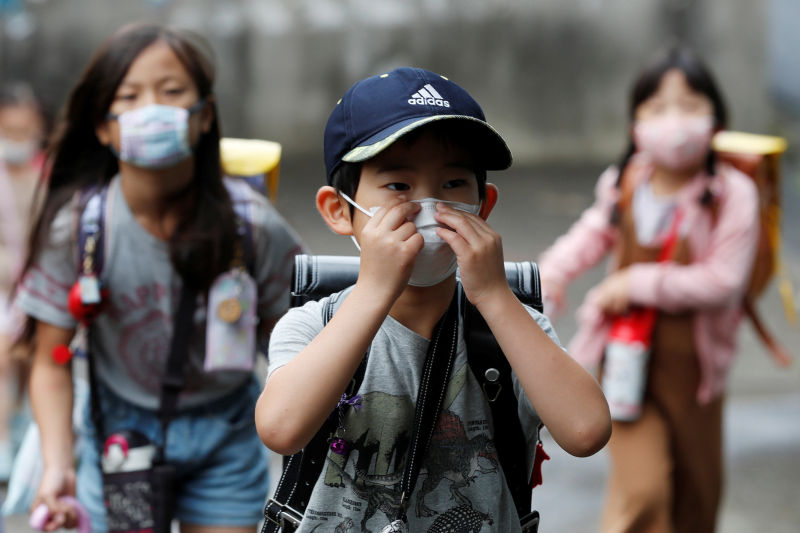Japanese Prime Minister Fumio Kishida has vowed to take urgent steps on Monday to bolster the country’s declining birth rate.
The PM spoke after official estimates revealed that births sank to a record low of less than 800,000 births for the first time – eight years faster than the government expected.
Kishida warned that action had to be taken immediately to remedy the ‘crisis’ in a society where the median age is 49 – the highest in the world behind tiny Monaco.
Japan has tried in recent years to encourage its people to have more children with promises of cash bonuses and better benefits, but it remains one of the most expensive places in the world to raise a child, according to surveys.
“Our nation is on the cusp of whether it can maintain its societal functions,” Kishida said in a policy speech at the opening of this year’s parliamentary session.
“It is now or never when it comes to policies regarding births and child-rearing – it is an issue that simply cannot wait any longer,” he added.
ALSO SEE:
Japan’s Factory Activity Declines for Third Month in a Row
Child budget to double
Kishida said he would submit plans to double the budget for child-related policies by June, and that a new Children and Families government agency to oversee the issue would be set up in April.
Japan is the third-most-expensive country globally to raise a child, according to YuWa Population Research, behind only China and South Korea, countries also seeing shrinking populations in worrying signs for the global economy.
Other countries are also coming to grips with ageing and shrinking populations.
Last week, China reported that its population dropped in 2022 for the first time in 60 years.
- Reuters with additional editing by Jim Pollard
NOTE: The headline on this report was amended on January 24, 2023.
ALSO SEE:
China’s First Population Decline in 60 Years Sparks Concern
Japan Population Sees Biggest Drop in Nine Years – SCMP
China Sees Lowest Population Growth in Decades
India to Overtake China as Most Populous Nation in 2023: UN
Southeast Asia Braces for Rising Dementia Caseload
























